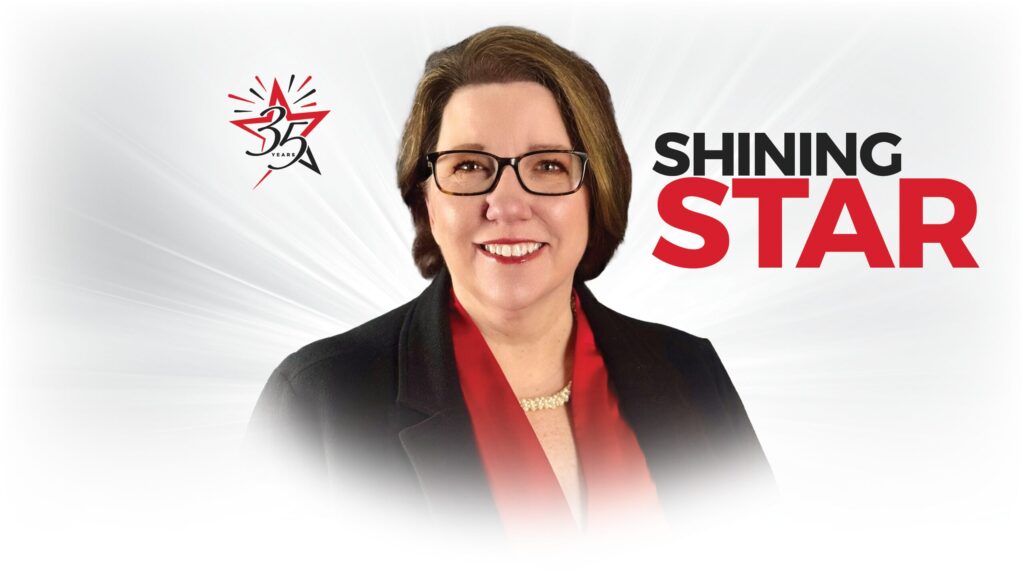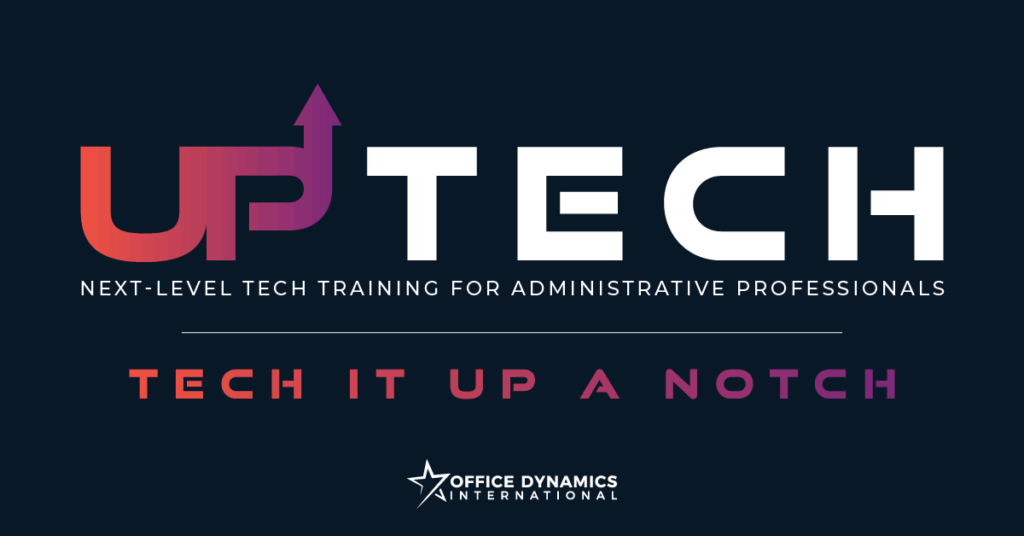In honor of 35 years of inspiring administrative excellence, we are highlighting shining stars of the administrative profession: trailblazers who are excelling in their roles. This month’s Shining Star, Cindy McConnell, is Executive Assistant to the President & CEO of Shure, Inc. Cindy was previously featured in our article on The Power of One. Here’s her advice for other administrative professionals.
Q: Can you share the story of how you began your career as an executive assistant and what inspired you to pursue this path?
My journey as an Executive Assistant was not one I initially set out to pursue: it was a path that unfolded organically. When I joined Shure in 2001 as Office Coordinator, I could not have predicted the opportunities ahead. However, the leadership team recognized my potential and entrusted me with increasing levels of responsibility. Within two years, I was providing support to several C-suite executives, honing my skills in high-level administration.
In 2005, after a shift in executive leadership, my role transitioned, and I began to support a specific executive, Chris Schyvinck. This shift enabled me to cultivate a deeper partnership, gaining a comprehensive understanding of her vision, priorities, and leadership style. It was through this experience that I truly refined my expertise in executive support, ensuring more seamless alignment with the strategic objectives of the company.
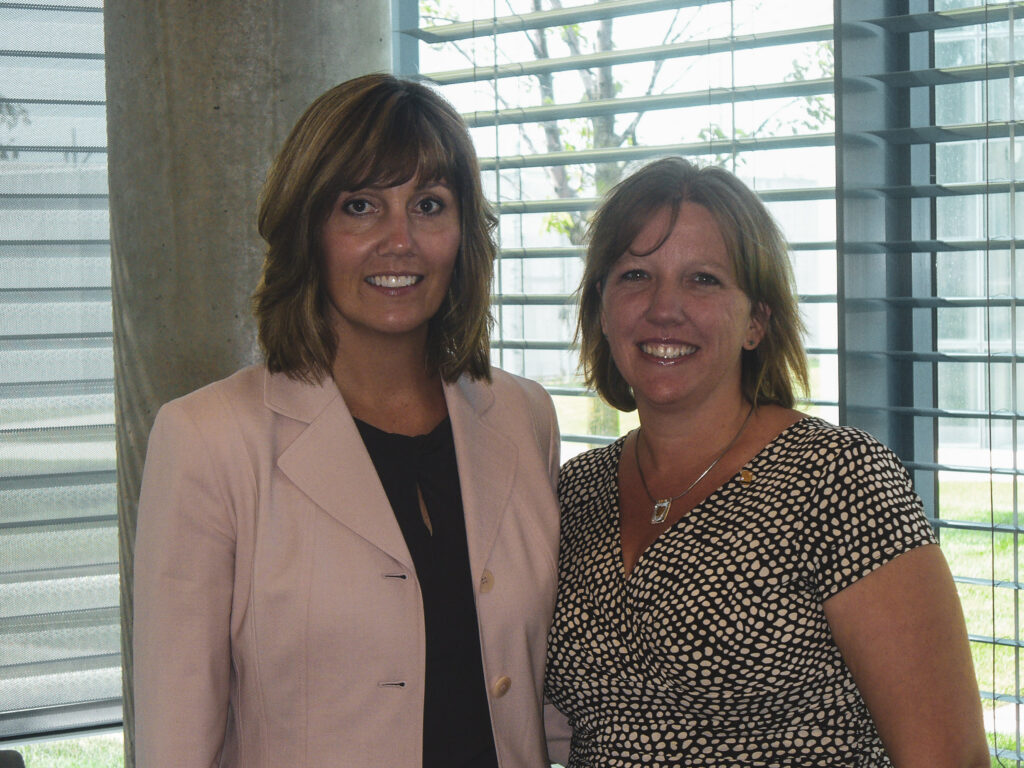
Chris Schyvinck, CEO of Shure, Inc., and Cindy McConnell.
Q: Can you share the story of how you began your career as an executive assistant and what inspired you to pursue this path?
When Chris succeeded our former president and became Chief Executive, I was honored to be promoted as her Executive Assistant to the CEO—an incredible milestone that solidified my role as a strategic partner at the company. Reflecting on my career, I am deeply grateful for the trust and opportunities extended to me by Chris and the leadership team. The past two decades have been an immensely fulfilling journey, defined by collaboration, growth, and a steadfast commitment to excellence.
Q: What would you consider your biggest achievement as an executive assistant, and why does it stand out?
One of my most significant achievements as an Executive Assistant has been cultivating a strong, trusted strategic partnership with Chris. She often refers to me as her “right hand,” which is a testament to the confidence and trust she places in me to provide candid insights, operational foresight, and unwavering discretion. As a key confidant, I am entrusted with highly sensitive information and play an integral role in ensuring that executive priorities are seamlessly executed with a clear understanding of the broader business landscape.
A defining example of this partnership was my recommendation to establish a dedicated meeting series for all Company Officers—a forum designed not just for information-sharing but as a dynamic space where cross-functional leaders can align, collaborate, and drive key initiatives forward. Chris immediately recognized the value of this effort, and it has since become a cornerstone for executive alignment and decision-making.
Her willingness to embrace and act on my ideas reflects the strength of our working relationship and underscores the value she places on my role. Knowing that the support I provide enables her to remain focused on high-level strategy and leadership is incredibly fulfilling. Our partnership is built on trust, mutual respect, and a shared commitment to driving company success.
Q: What are the top three skills every successful executive assistant should master, and why?
The top three skills every successful executive assistant should master are:
- Discretion and Confidentiality – The most successful Executive Assistants must consistently demonstrate the highest levels of integrity and trustworthiness, ensuring that confidential information is protected and that executives feel confident in their discretion. The ability to handle confidential information with discretion is pivotal for maintaining trust, protecting the company, ensuring legal compliance, safeguarding reputations, and contributing to effective and smooth operations.
- Emotional Intelligence – Emotional intelligence is essential for Executive Assistants to effectively manage interpersonal relationships, resolve conflicts, and communicate clearly, fostering a positive and productive work environment. It also helps in self-regulation and adaptability, ensuring they perform efficiently under pressure and anticipate the needs of the executives they support and their teams.
- Vision and Strategic Thinking – Vision and strategic thinking enable assistants to align their work with the long-term goals and objectives of the executive they support and the business. By understanding the bigger picture, they can prioritize tasks effectively, anticipate needs, and contribute to strategic planning, ultimately supporting executives in making informed decisions and driving organizational success.
Q: Are there any tools, apps, or technologies that you rely on daily to stay efficient and organized?
While some may assume that advancements in AI could diminish the role of the Executive Assistant, I have found the opposite to be true. The recent implementation of Microsoft Copilot has been a game-changer, enhancing both efficiency and effectiveness in my role.
This technology enables me to quickly locate documents and emails, summarize lengthy threads, draft communications, and transcribe Q&A from live Town Hall meetings. Additionally, I leverage it to create meeting agendas, capture real-time notes, generate action items, and analyze scheduling patterns to optimize calendar management. By automating these tasks, I can redirect my focus toward high-impact strategic initiatives, ensuring that my support drives meaningful business outcomes.
Ready to Level Up Your Tech Skills?
UpTECH is a brand-new lineup of monthly training classes from Office Dynamics International, led by productivity expert Mike Song. Each session is laser-focused on the tools assistants use most—like Excel, Outlook, Google Workspace, PowerPoint, and more—offering advanced tips that save time and boost impact.
Whether you’re aiming to streamline your day, support your executive more strategically, or stay ahead of the tech curve, UpTECH delivers the skills you need now and in the future.
What resources—books, courses, or mentors, have had the greatest impact on your career development?
One of the most influential resources in my career has been Joan Burge and the Office Dynamics training programs. When I first attended her sessions, I was still growing my confidence and understanding the true impact an Executive Assistant can have. Through years of trainings and conferences, Joan helped me shift my mindset and fully recognize the strategic value I bring to my role.
A particularly transformative moment was her training on the importance of building a true strategic partnership with an executive—an insight I embraced and implemented immediately upon returning to work. That perspective has been instrumental in shaping the way I support Chris and contribute to Shure.
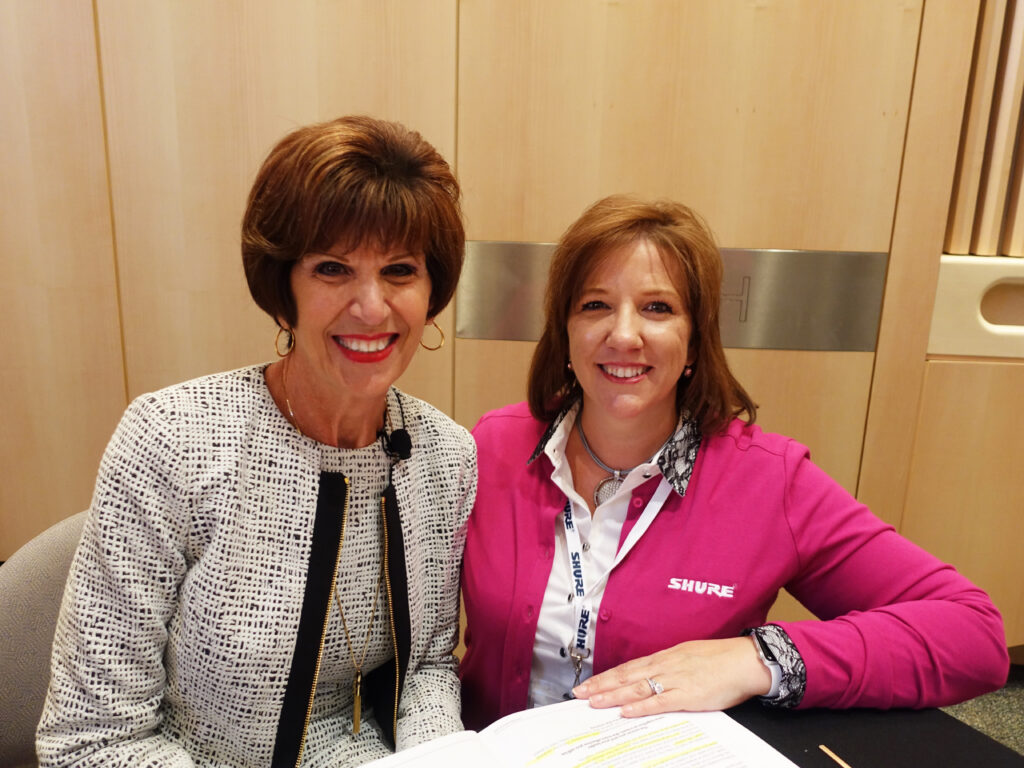
Joan Burge, CEO of Office Dynamics, and Cindy McConnell.
Joan’s monthly webinars continue to provide valuable insights on a wide range of topics, and her Monday Motivator email serves as a powerful reminder to start each week with focus and intention. Her teachings have not only equipped me with practical tools but have also instilled in me the executive presence and confidence I need to excel in a high-level support role. I am deeply grateful for her influence on both my professional development and personal growth.
(I know it may sound like flattery, but I genuinely mean every word. The impact Joan has had on my professional growth is something I deeply value. In fact, Chris has shared with both Joan and me that she’s seen a significant transformation in my confidence and capabilities since I began working with Joan and participating in her programs. That kind of growth wouldn’t have been possible without the guidance, support, and insight I’ve gained through those experiences.)
Editor’s note: Thank you so much, Cindy! We’re honored to be part of your journey, and so proud of your success!
Q: What do you love most about being an executive assistant, and why does it resonate with you?
What I love most about being an Executive Assistant is the dynamic nature of the role. Every day brings new challenges and opportunities. I’m especially grateful to work alongside a CEO who empowers me to go beyond traditional Executive Assistant responsibilities and take on high-level projects. Her trust in my abilities inspires me to embrace new challenges with confidence and a solutions-oriented mindset.
I also have a deep passion for event planning. I thrive on creating unique, meaningful experiences, rather than following a one-size-fits-all approach. The opportunity to blend creativity with strategic execution excites me, especially when I see the lasting impact these events have on the company and our Associates.
For example, when planning our 100th Anniversary celebrations, I incorporated elements that honored our Company’s rich legacy while engaging Associates through innovative activities designed to provide a sense of connection and pride. Witnessing the positive reactions, increased morale, and strengthened sense of community reaffirmed the power of well-executed events in shaping corporate culture.
The combination of strategic partnership, problem-solving, and creative execution is what makes this role so fulfilling. Knowing that my work directly contributes to my executive’s success and Associate engagement is incredibly rewarding.
Q: What do you think will be the most important skill or mindset for future administrative professionals to cultivate?
The most critical skills and mindsets for future Executive Assistants will be adaptability, proactive problem-solving, and digital fluency. As the workplace continues to evolve at an accelerated pace, Executive Assistants must be able to anticipate needs, adjust seamlessly to shifting priorities, and approach challenges with forward-thinking, strategic solutions.
Adaptability is key to thriving in an environment where change is constant. Whether it’s pivoting between urgent tasks, integrating new technologies, or transitioning to hybrid work models, Executive Assistants who embrace change with agility will be invaluable assets to their executives and to their companies.
Proactive problem-solving is another essential skill. Executive Assistants must anticipate challenges before they arise, develop contingency plans, and implement solutions that boost efficiency. For example, identifying communication bottlenecks and proactively introducing streamlined processes can significantly improve information flow and decision-making.
Digital fluency is no longer optional—it’s a necessity. Mastering project management platforms, collaboration tools, and data-driven applications enables Executive Assistants to optimize workflows and provide insightful, tech-driven support. Embracing AI-powered tools for scheduling, automation, and data analysis will further enhance productivity, allowing Executive Assistants to focus on high-impact strategic initiatives.
By cultivating these skills, future administrative professionals will position themselves as indispensable strategic partners—driving efficiency, innovation, and organizational success.
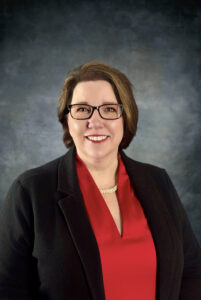
Cindy McConnell, CEAP, CWCA
Executive Assistant to the Chairman, President, and CEO
Shure Incorporated
Cindy McConnell serves as the Executive Assistant to the Chief Executive Officer of Shure Incorporated, where she is regarded as a trusted strategic partner and confidant. Promoted to this pivotal role in 2016, Cindy plays an integral part in the executive leadership ecosystem, contributing not only to the daily cadence of operations, but also to the long-term planning, prioritization, and execution of company-wide strategic initiatives.
With more than two decades of administrative experience and a career at Shure that began in 2001, Cindy has held roles of increasing responsibility across Global Marketing and Sales, Operations, Information Technology, and Executive Administration. Her knowledge of the company’s internal structure, combined with impeccable judgment and a proactive approach, enable her to anticipate executive needs, streamline decision-making, and ensure focus on the highest-value activities.
Cindy is known for her unwavering commitment to confidentiality, particularly in her work supporting Shure’s Board of Directors. She is entrusted with highly sensitive matters and handles them with discretion and integrity, reinforcing her role as a key guardian of trust at the Company.
Cindy is also a leader and mentor within the Executive Administration team. She fosters a culture of collaboration, shares best practices, and encourages the team to drive continuous improvement in support services.
She oversees the planning and budgeting for a wide range of corporate events—from family activities and strategic Town Halls to high-level strategy meetings and global celebrations, including the successful orchestration of Shure’s 100th Anniversary events.
Cindy holds both World Class Assistant (2012) and Certified Executive Administrative Professional (2014) certifications.
Cindy’s is a steady, strategic presence behind the CEO at Shure, a champion of operational excellence, and a dedicated steward of the company’s culture and mission.

